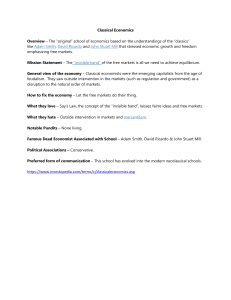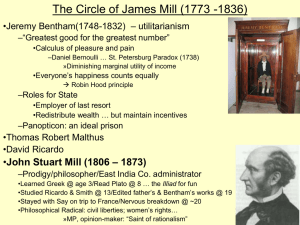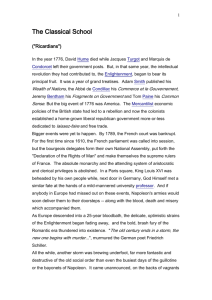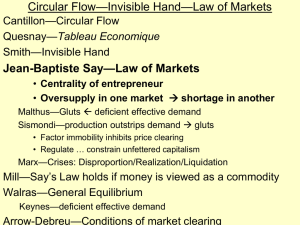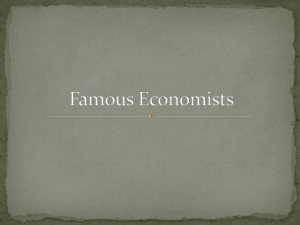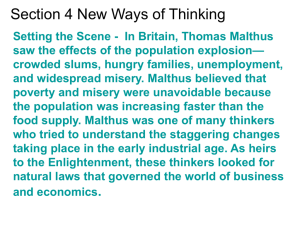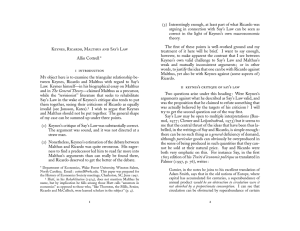Document 11690199
advertisement
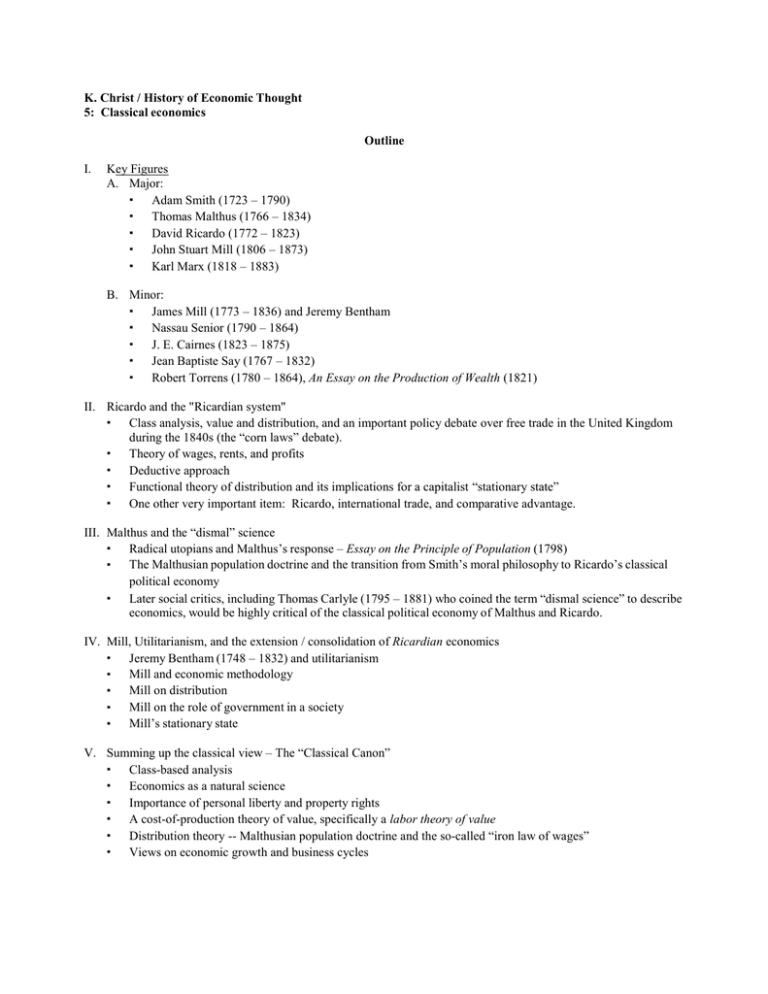
K. Christ / History of Economic Thought 5: Classical economics Outline I. Key Figures A. Major: ∙ Adam Smith (1723 – 1790) ∙ Thomas Malthus (1766 – 1834) ∙ David Ricardo (1772 – 1823) ∙ John Stuart Mill (1806 – 1873) ∙ Karl Marx (1818 – 1883) B. Minor: ∙ James Mill (1773 – 1836) and Jeremy Bentham ∙ Nassau Senior (1790 – 1864) ∙ J. E. Cairnes (1823 – 1875) ∙ Jean Baptiste Say (1767 – 1832) ∙ Robert Torrens (1780 – 1864), An Essay on the Production of Wealth (1821) II. Ricardo and the "Ricardian system" ∙ Class analysis, value and distribution, and an important policy debate over free trade in the United Kingdom during the 1840s (the “corn laws” debate). ∙ Theory of wages, rents, and profits ∙ Deductive approach ∙ Functional theory of distribution and its implications for a capitalist “stationary state” ∙ One other very important item: Ricardo, international trade, and comparative advantage. III. Malthus and the “dismal” science ∙ Radical utopians and Malthus’s response – Essay on the Principle of Population (1798) ∙ The Malthusian population doctrine and the transition from Smith’s moral philosophy to Ricardo’s classical political economy ∙ Later social critics, including Thomas Carlyle (1795 – 1881) who coined the term “dismal science” to describe economics, would be highly critical of the classical political economy of Malthus and Ricardo. IV. Mill, Utilitarianism, and the extension / consolidation of Ricardian economics ∙ Jeremy Bentham (1748 – 1832) and utilitarianism ∙ Mill and economic methodology ∙ Mill on distribution ∙ Mill on the role of government in a society ∙ Mill’s stationary state V. Summing up the classical view – The “Classical Canon” ∙ Class-based analysis ∙ Economics as a natural science ∙ Importance of personal liberty and property rights ∙ A cost-of-production theory of value, specifically a labor theory of value ∙ Distribution theory -- Malthusian population doctrine and the so-called “iron law of wages” ∙ Views on economic growth and business cycles
